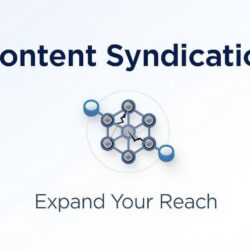Predictive Artificial Intelligence has become a cornerstone of modern marketing strategies. For businesses focused on Lead Generation, predictive AI models analyze historical data to forecast which prospects are most likely to convert. This technology allows marketing teams to move from reactive to proactive strategies, targeting leads with high intent before they even engage fully with a brand. The predictive approach reduces inefficiencies, optimizes resource allocation, and creates highly personalized campaigns that resonate with audiences.
Understanding Predictive AI Models
Predictive AI models rely on machine learning algorithms to identify patterns and anticipate outcomes based on historical and real-time data. These models evaluate variables such as demographic information, engagement history, content consumption, and behavioral signals. By analyzing these patterns, AI can predict future actions, such as the likelihood of a lead responding to an email, attending a webinar, or making a purchase. This predictive capability allows marketing teams to prioritize leads, design personalized campaigns, and improve overall conversion rates.
Enhancing Lead Quality with Predictive Scoring
Traditional lead scoring often depends on static criteria that may not accurately reflect a prospect’s likelihood to convert. Predictive AI scoring evaluates multiple dimensions of lead behavior, such as website interactions, content downloads, email engagement, and social media activity. It then generates a dynamic score that adjusts in real time based on updated data. This approach ensures that sales and marketing teams focus on the most promising leads, reducing wasted effort and increasing the probability of successful conversions.
Predicting Buyer Intent for Personalized Campaigns
Understanding buyer intent is crucial for effective lead generation. Predictive AI models analyze behavioral cues and engagement history to anticipate a prospect’s needs and readiness to purchase. For instance, if a lead frequently interacts with content related to digital transformation, predictive AI can suggest targeted campaigns, personalized emails, or offers relevant to that topic. By predicting intent, marketers can deliver the right message at the right time, fostering stronger relationships and higher engagement rates.
Optimizing Campaign Performance with Predictive Insights
Predictive AI does not just identify high-value leads; it also optimizes campaign performance. By analyzing historical campaign data, predictive models can forecast which strategies are likely to yield the best results. Marketers can then allocate budgets, select channels, and design content that maximizes impact. Over time, predictive insights continuously refine marketing efforts, creating an adaptive system that learns from successes and failures to improve outcomes consistently.
Automating Lead Nurturing Based on Predictions
Lead nurturing is a critical part of the sales process, and predictive AI makes it more efficient and effective. AI-driven workflows can automatically deliver personalized content, reminders, and offers based on a lead’s predicted behavior. If a prospect is likely to engage with a specific resource or product, predictive AI can trigger a timely email or retargeted ad to capture interest. This automation ensures that every touchpoint aligns with the lead’s journey, reducing drop-offs and accelerating the path to conversion.
Multi-Channel Predictive Targeting
Prospects interact with businesses across multiple channels, from email to social media and search engines. Predictive AI integrates data from all touchpoints to determine which channels are most effective for individual leads. For example, it can identify that a specific lead is more likely to respond to LinkedIn messages than email campaigns. By directing resources toward the most impactful channels, predictive AI ensures higher engagement and better ROI, while maintaining consistent messaging across platforms.
Enhancing ABM Strategies with Predictive AI
Account-Based Marketing has grown increasingly effective when combined with predictive AI. Predictive models help identify high-value accounts by analyzing engagement patterns, firmographic data, and behavioral indicators. This enables marketing teams to design campaigns tailored to individual accounts, targeting decision-makers with personalized content. Predictive AI also measures account engagement, allowing teams to adjust strategies dynamically for higher success rates. This approach strengthens the alignment between marketing and sales while increasing the probability of closing high-value deals.
Real-Time Analytics and Predictive Decision Making
Predictive AI continuously monitors lead interactions and campaign performance, offering real-time analytics that guide decision-making. Marketers can instantly assess which campaigns, content types, and channels are performing best and adjust strategies accordingly. This agility allows businesses to respond to changing market conditions and customer preferences faster than competitors. Real-time predictive insights also support proactive decision-making, helping marketers anticipate challenges and capitalize on emerging opportunities.
AI-Driven Personalization at Scale
Personalization is one of the most significant advantages of predictive AI in lead generation. By understanding each lead’s predicted behavior and preferences, AI can deliver customized experiences at scale. This includes dynamic website content, personalized emails, and targeted advertising. AI ensures that every interaction feels relevant, increasing engagement and improving lead conversion rates. Personalization powered by predictive AI fosters trust and strengthens long-term relationships with prospects.
Reducing Cost Per Lead and Maximizing ROI
By focusing on high-potential leads and optimizing campaigns, predictive AI reduces unnecessary marketing spend. Businesses can allocate resources more effectively, avoiding channels or strategies that do not yield results. The combination of targeted outreach, automated workflows, and predictive insights improves conversion rates while lowering cost per lead. Over time, predictive AI contributes to a measurable increase in marketing ROI and overall efficiency.
Ethical Implementation of Predictive AI
While predictive AI offers substantial benefits, ethical implementation is essential. Businesses must ensure transparency in data collection, processing, and analysis. Compliance with privacy regulations and respectful handling of customer information is critical for building trust. Predictive AI should complement human decision-making rather than replace it, providing actionable insights that empower marketers to engage with leads thoughtfully and responsibly.
The Future of Predictive AI in Lead Generation
The potential for predictive AI in lead generation is vast. As algorithms become more sophisticated, they will incorporate deeper behavioral analysis, intent prediction, and automated personalization. Businesses that adopt predictive AI now position themselves to outperform competitors by generating higher-quality leads, increasing conversion rates, and enhancing overall marketing efficiency. Predictive AI represents the next evolution of intelligent, data-driven lead generation strategies that are adaptive, precise, and scalable.
About Us
Acceligize is a global B2B demand-generation and technology marketing firm specializing in performance-driven lead generation solutions. Their services include content syndication, account-based marketing, intent and install-based targeting, and custom campaign strategies. Leveraging data science, technology, and human intelligence, Acceligize helps clients reach high-quality audiences and drive conversions across the full marketing funnel.




